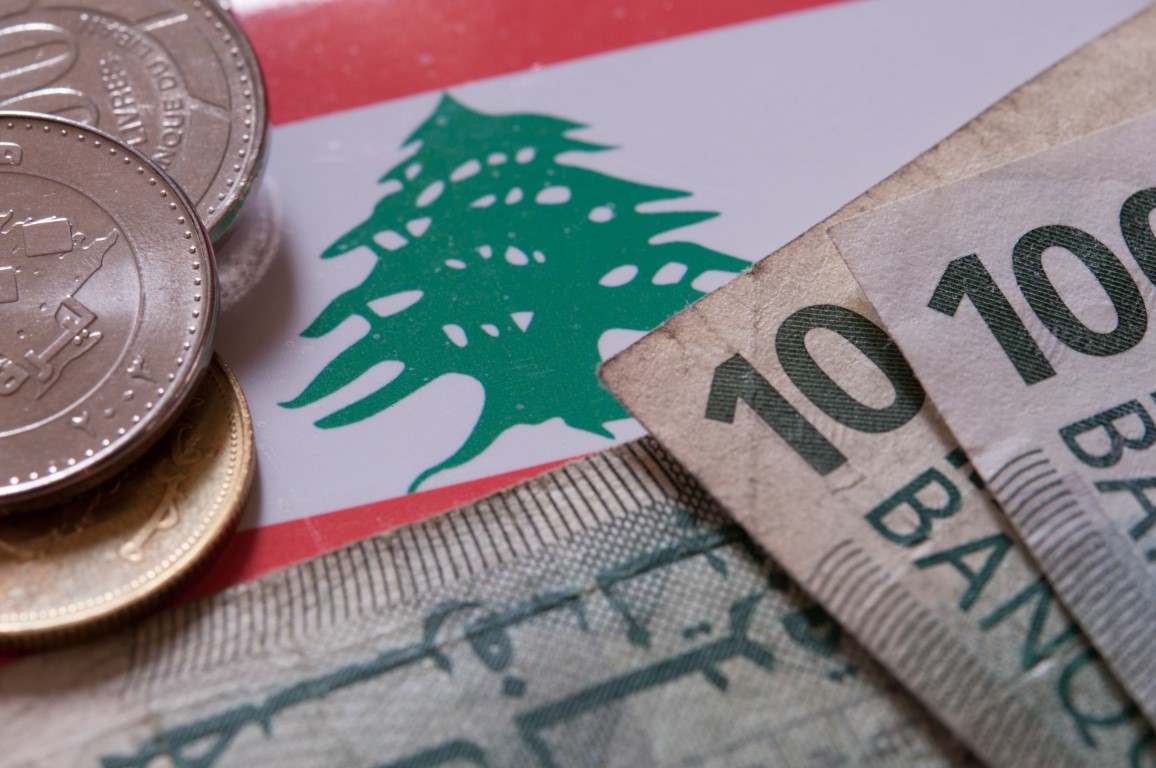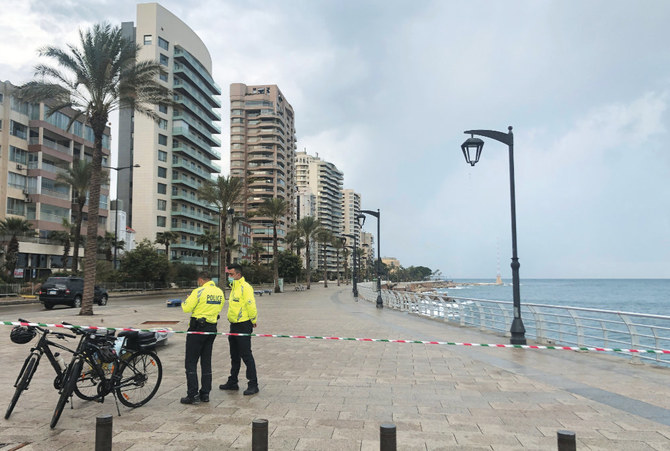BEIRUT (REUTERS) - Lebanon's parliament on Friday approved a law that paves the way for the government to sign deals for coronavirus vaccines as it battles a steep increase in infections. Lebanon said in mid-December it was expecting to sign a deal for supplies of Pfizer-BioNTech's COVID-19 vaccine and hoped to receive the first batch eight weeks after that. But the country, now struggling with a severe spike in infections that has overwhelmed hospitals, hit a legal stumbling block that has so far prevented it from finalising the agreement. The new law would give Pfizer-BioNtech, and other companies that provide vaccines to Lebanon, protection from any future liability claims for two years. It includes a clause that points to the Lebanese health ministry as the only entity responsible for compensation.
Lebanon is under a three-week lockdown that ends on Feb. 1 and a strict 24-hour curfew until Jan. 25 after lax measures over the Christmas and New Year's holiday period led to a spike in cases. Hamad Hasan, the country's caretaker health minister, has previously said the ministry had secured about 2 million doses of Pfizer-BioNTech's COVID-19 vaccine, to cover 20% of Lebanese nationals, but the government has yet to announce a starting date for a national vaccination programme. Hasan on Friday tweeted his thanks to the parliament for approving the law. He has been hospitalised since Wednesday with coronavirus but is in stable condition and continuing to work from his hospital bed. Apart from the anticipated Pfizer-BioNtech deal, Lebanon's President Michel Aoun approved on Friday the transfer of 26.4 billion Lebanese pounds ($17.53 million) to COVAX to book 2.73 million vaccines, his official twitter account said.

By By Tony Akleh -- arabianbusiness.com -- The Lebanese pound continues to be ranked as the most undervalued currency in the world, according to new research. An analysis by Arabian Business based on the Big Mac Index published by The Economist shows that a Big Mac costs 68.7 percent less in Lebanon (LBP15,500 or $1.70) against $5.66 in the United States in January. The implied exchange rate is 2,738.52. The difference between this and the actual exchange rate, 8,750.00, suggests the Lebanese pound is 68.7 percent undervalued, that means Lebanon has the cheapest Big Macs in the world.
The second most undervalued currency is the Russian rouble at 68 percent followed by the Turkish Lira at 64.5 percent. The Big Mac Index for January, which tracks 55 currencies, ranked the Swiss Franc (+28.8 percent overvalued), Swedish Krona (+12.6 percent) and Norwegian Krona (+7.5 percent) as the most overvalued currencies. The rate LBP/$8,750 as of Thursday means the currency has lost 83 percent of its value in the past year since banks began restricting withdrawals of dollars. Lebanon has pegged the value of its currency to the dollar at the rate of LBP1,507 for the past three decades, and the government still officially maintains the level even as the pound collapses and banks halt all dollar withdrawals, except for what are called "fresh" transfers of dollars from overseas. Lebanon’s central bank governor Riad Salameh announced last week that the era of the dollar peg was finished but added that the country’s currency will not be floated unless an agreement with the International Monetary Fund was reached. The admission of the currency peg’s demise was a first from the central bank governor, who has spent years upholding the rate that crashed in 2020.

by NAJIA HOUSSARI -- arabnews.com -- BEIRUT: Lebanon’s security forces have praised public compliance with lockdown measures as the country struggles to reduce a dramatic rise in the number of coronavirus cases. Internal Security Forces spokesman Col. Joseph Mousallem told Arab News that the rate of commitment to the curfew was 90 percent across the country, including poorer districts, where residents previously have been skeptical about measures to stop the spread of the virus. However, with 10 days until the nationwide lockdown ends, a record 5,000 confirmed coronavirus cases were reported on Wednesday. A 19-year-old man was among the 35 deaths. Director of the Hariri Governmental University Hospital, Dr. Firas Al-Abyad, renewed his warning that “the situation is very serious, and we need to work together to end these difficult circumstances.”
Lebanon’s healthcare sector is exhausted after 10 months of dealing with the pandemic, he said. “We need to find an exit from this situation.” Most hospitals in Lebanon have canceled all but emergency operations amid warnings of bed shortages and medicines running low. Beirut and other major cities have been largely silent in recent days, with traffic limited to grocery deliveries and vehicles exempted from the curfew. Observers say that a media campaign urging people to stay home by highlighting the suffering of patients and those unable to find a hospital bed appears to have convinced most Lebanese to adhere to the latest restrictions. However, Dr. George Jovelekian, head of the intensive care department at St. George Hospital University Medical Center, said that the country still faces “two catastrophic weeks in terms of coronavirus cases.” He called on people to follow the restrictions so that medical staff can continue to perform their duties.
by BY JOHN BOWDEN — thehill.com — Health officials in Brazil said Tuesday that a Chinese-produced vaccine for COVID-19 is just over …
Khazen History


Historical Feature:
Churches and Monasteries of the Khazen family

St. Anthony of Padua Church in Ballouneh
Mar Abda Church in Bakaatit Kanaan
Saint Michael Church in Bkaatouta
Saint Therese Church in Qolayaat
Saint Simeon Stylites (مار سمعان العامودي) Church In Ajaltoun
Virgin Mary Church (سيدة المعونات) in Sheilé
Assumption of Mary Church in Ballouneh
1 - The sword of the Maronite Prince
2 - LES KHAZEN CONSULS DE FRANCE
3 - LES MARONITES & LES KHAZEN
4 - LES MAAN & LES KHAZEN
5 - ORIGINE DE LA FAMILLE
Population Movements to Keserwan - The Khazens and The Maans
ما جاء عن الثورة في المقاطعة الكسروانية
ثورة أهالي كسروان على المشايخ الخوازنة وأسبابها
Origins of the "Prince of Maronite" Title
Growing diversity: the Khazin sheiks and the clergy in the first decades of the 18th century
Historical Members:
Barbar Beik El Khazen [English]
Patriach Toubia Kaiss El Khazen(Biography & Life Part1 Part2) (Arabic)
Patriach Youssef Dargham El Khazen (Cont'd)
Cheikh Bishara Jafal El Khazen
Patriarch Youssef Raji El Khazen
The Martyrs Cheikh Philippe & Cheikh Farid El Khazen
Cheikh Nawfal El Khazen (Consul De France)
Cheikh Hossun El Khazen (Consul De France)
Cheikh Abou-Nawfal El Khazen (Consul De France)
Cheikh Francis Abee Nader & his son Yousef
Cheikh Abou-Kanso El Khazen (Consul De France)
Cheikh Abou Nader El Khazen
Cheikh Chafic El Khazen
Cheikh Keserwan El Khazen
Cheikh Serhal El Khazen [English]
Cheikh Rafiq El Khazen [English]
Cheikh Hanna El Khazen
Cheikha Arzi El Khazen
Marie El Khazen